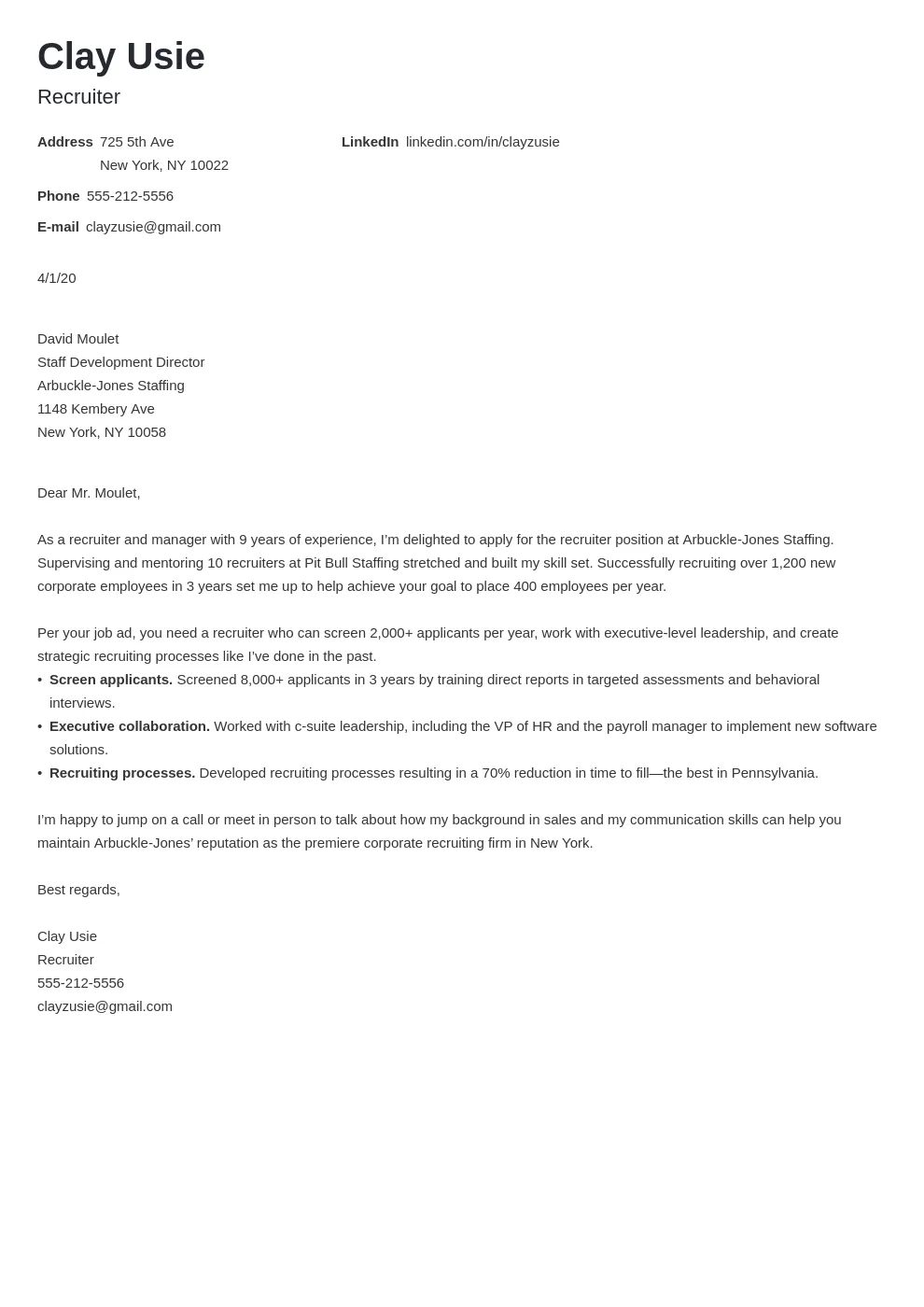Why a Talent Agency Cover Letter Matters
A talent agency cover letter is your first impression, a critical tool in securing representation. It goes beyond a resume, allowing you to showcase personality, passion, and unique qualifications. This document explains why you’re a good fit for the agency and the industry. Your cover letter complements your resume, providing context, detail, and personalization that a resume alone cannot convey. This is where you sell yourself, and a well-crafted letter can significantly increase your chances of getting noticed. It shows your dedication and professionalism, setting you apart from others. It’s your opportunity to make a memorable first impression and encourage the agency to learn more about you. Remember, the goal is to grab their attention, highlight your potential, and convince them you are worth representing. Therefore, investing time in creating a compelling cover letter is a crucial step in your career journey.
Crafting a Compelling Cover Letter
Creating a compelling cover letter involves more than just listing your skills and experiences; it’s about telling your story. First, personalize the letter. Address the agency or a specific agent by name if possible. Research the agency to understand their focus, the talent they represent, and tailor your letter to their specific needs. The content should be concise, clear, and easy to read. Use active voice, strong verbs, and avoid jargon that the recipient may not understand. Emphasize your enthusiasm for the industry and the agency. Show, don’t just tell, by providing specific examples of your achievements and how they align with the agency’s goals. Finally, proofread meticulously to ensure there are no grammatical errors or typos. A well-crafted cover letter is a blend of professionalism, personality, and persuasive writing. It should leave a lasting impression and encourage the agency to take the next step of reviewing your portfolio or resume.
Highlighting Your Skills and Experience
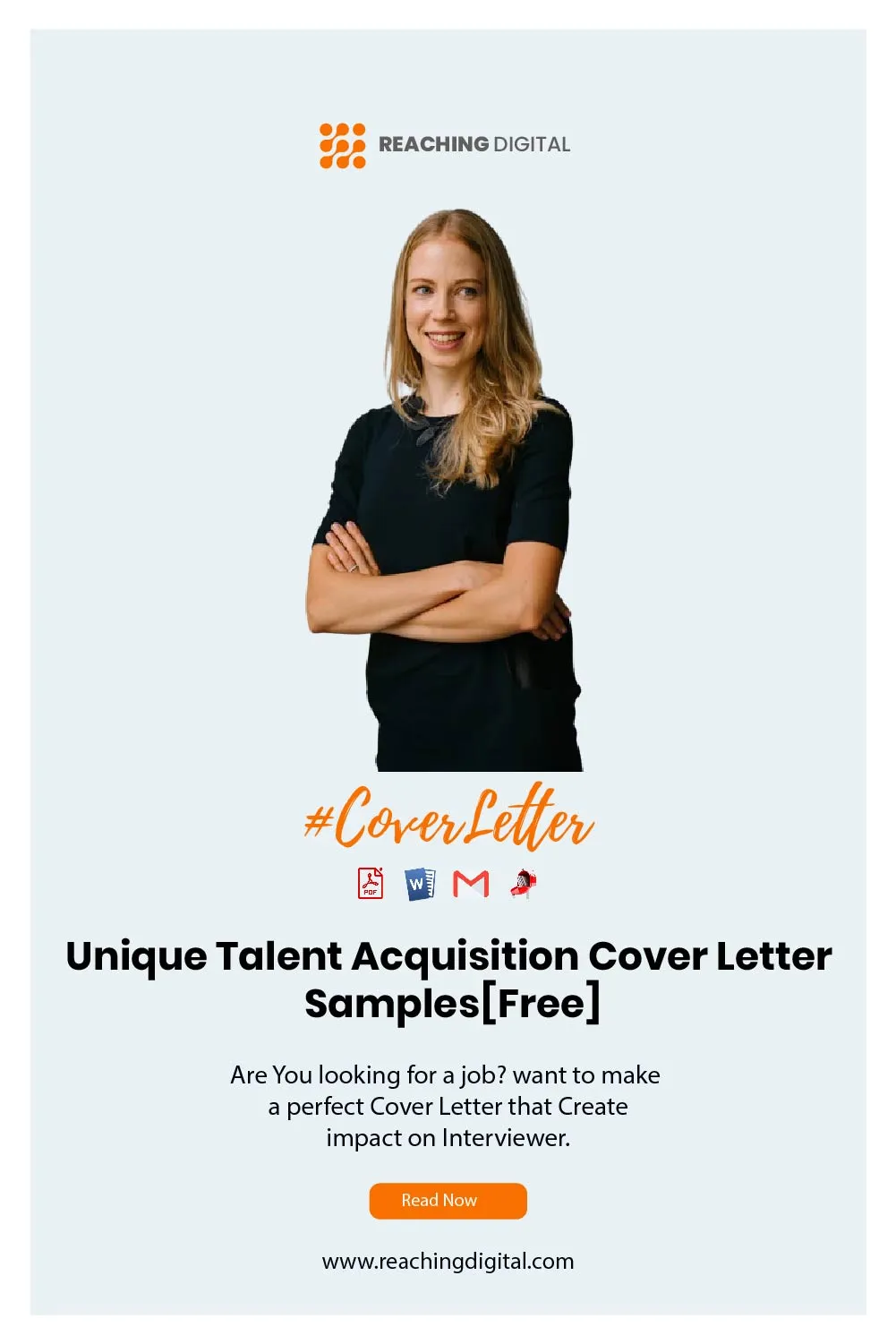
When highlighting your skills and experience, focus on what makes you stand out. Start by identifying your core competencies relevant to the talent agency’s needs. Use specific examples to demonstrate your abilities. Quantify your achievements whenever possible; for instance, detail the number of projects you’ve worked on or the revenue you’ve helped generate. Emphasize transferable skills that make you a versatile candidate, such as communication, problem-solving, or leadership. Tailor your examples to align with the agency’s focus. If they specialize in film, highlight your film experience; if it’s music, focus on your musical accomplishments. Avoid simply listing skills; instead, weave them into the narrative of your experience. This approach showcases your capabilities and tells a cohesive story about who you are and what you bring to the table. This makes your cover letter more engaging and impactful, showing why you’re a good fit and how you can contribute to their success.
Showcasing Your Unique Selling Points
Every individual has something unique to offer, and your cover letter is the perfect place to highlight your unique selling points. Start by identifying what sets you apart from other candidates. It could be a specific skill, unique experience, or distinctive personality trait. Emphasize these unique aspects to grab the reader’s attention. If you have a specialized skill set, make that the focus. For instance, if you are proficient in a niche area, make sure it stands out. Share any awards or recognition that you have received; such achievements not only validate your skills but also demonstrate your commitment to excellence. Use your cover letter to inject your personality. Let your enthusiasm for the industry shine through. A good cover letter gives a glimpse into your personality, making the reader want to know more. By showcasing these unique selling points, you increase your chances of being remembered and chosen for representation.
Researching the Talent Agency
Thorough research is critical to making a good impression. Visit the talent agency’s website to understand their roster of clients, the type of work they handle, and their overall philosophy. Look at their social media presence to see what they are currently promoting. If possible, find the name of the agent you should contact, which demonstrates that you’ve put in the effort. Learn about the agency’s successes and any awards or accolades they have received. Researching the agency will allow you to customize your cover letter, showcasing your interest and showing how your skills and experience align with their needs. It demonstrates respect for the agency and shows you are serious about being represented. Mention any specific projects or clients you admire, which shows that you are familiar with the agency’s work. This targeted approach enhances your cover letter and makes your application stand out.
Formatting Your Cover Letter
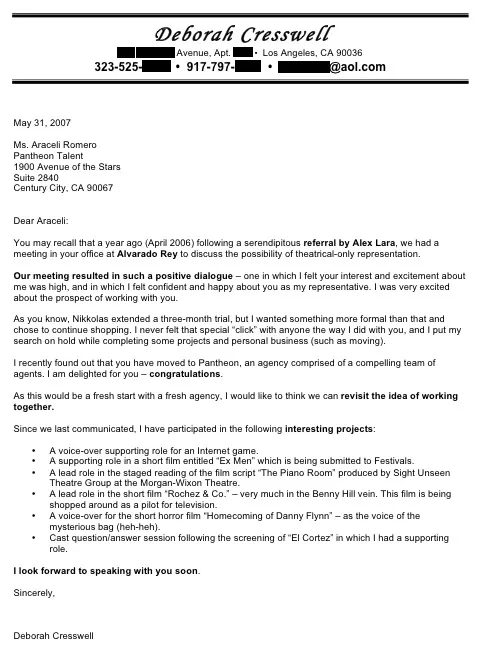
The formatting of your cover letter can influence the reader. Use a professional font, such as Times New Roman, Arial, or Calibri, to make sure your letter is easy to read. Maintain consistent formatting throughout the document. Use a clear and concise structure, with well-defined paragraphs and headings to break up the text. Pay attention to margins, spacing, and alignment to create a visually appealing layout. Keep the letter to one page. Avoid using excessive colors, fonts, or formatting styles that can distract the reader. The tone should be professional but still convey your personality. Proofread the letter for any grammatical errors or typos. A well-formatted cover letter shows attention to detail and professionalism, making a positive first impression. This ensures the reader can easily follow your message and understand your qualifications.
Structuring Your Cover Letter
A well-structured cover letter is key to getting noticed. Your cover letter should start with your contact information at the top. Follow with the date and the agency’s contact information. Begin with an engaging opening, immediately capturing the reader’s attention. Then include the main body of the letter, which is your opportunity to showcase your skills, experience, and unique selling points. Each paragraph should focus on a specific aspect of your qualifications. Keep the letter concise, focusing on the most relevant information. Structure your points logically, using clear headings and subheadings to guide the reader. Conclude with a strong closing, restating your interest in the agency and a call to action. The structure allows the reader to easily navigate the document and find important information. A structured approach ensures that your key selling points are clearly presented, increasing the chances of your application being successful.
Writing an Engaging Opening
The opening of your cover letter is the first thing the agency will read, so it’s essential to make it engaging and attention-grabbing. Instead of a generic opening, try something unique that captures the reader’s interest. Address the specific agent by name if you have it; this shows you’ve done your research. You might begin with a brief anecdote that showcases your passion for the industry. Alternatively, state your intent clearly and concisely. Mention a specific project you admire or a client of the agency. State your enthusiasm for the agency’s work. Avoid generic phrases like “I am writing to express my interest.” Show the agency what you can bring to the table, and make it clear why you are a good fit. The opening should be concise, direct, and show your personality and enthusiasm. Your goal is to get them excited to read more.
Detailing Your Relevant Experience
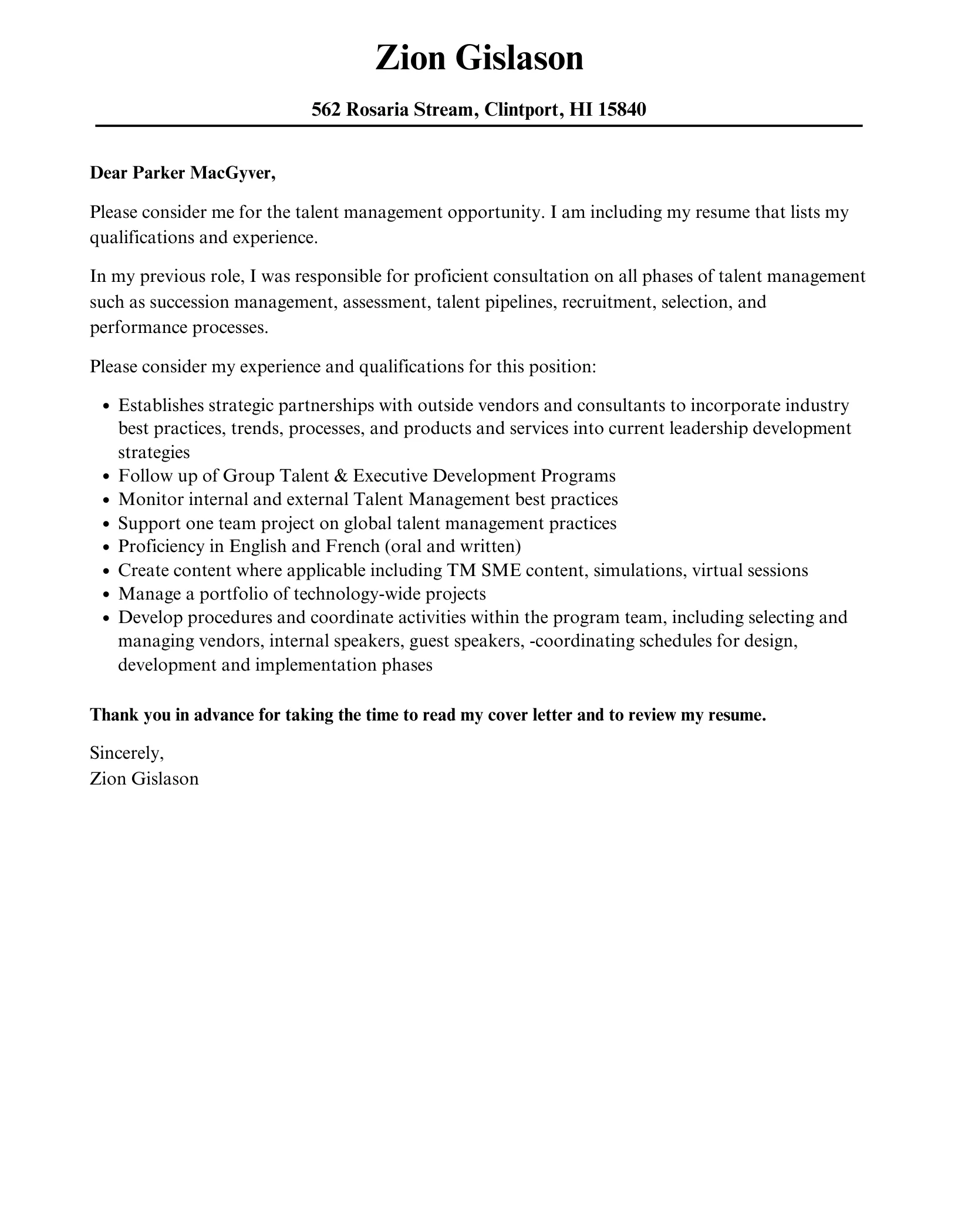
Providing detailed information about your relevant experience is essential for any cover letter. Instead of listing your experience, focus on how your work has contributed to success. Describe the roles you have held, and highlight your key responsibilities. Provide concrete examples of your achievements and how you contributed to them. Quantify your accomplishments whenever possible. For example, if you increased sales, state by what percentage or amount. Emphasize the skills you used and how you used them to achieve your goals. Customize the details based on the specific talent agency. If the agency focuses on a particular industry, focus on the relevant experience. Focus on your accomplishments and the impact you made in each position. Demonstrate how your experience aligns with the agency’s needs. The details help the agency assess your capabilities and determine how you can contribute to their team.
Emphasizing Your Achievements
Emphasizing your achievements is critical to proving your abilities. Focus on what you’ve accomplished in each role. Rather than listing job responsibilities, detail the specific successes you’ve had. Use action verbs to describe your achievements. Quantify your achievements whenever possible. For instance, specify the increase in revenue, the number of projects completed, or any awards you’ve received. Focus on the impact you made in each role, emphasizing how you contributed to success. Show how your achievements align with the agency’s goals, such as increasing their client base or improving their reputation. Demonstrating your achievements proves your ability to deliver results and contribute to the agency’s success. It shows that you are a valuable asset and worthy of representation. Therefore, take time to highlight the key achievements in each experience.
Demonstrating Your Passion
Demonstrating your passion for the industry is an excellent way to show your dedication. Share your enthusiasm for the industry. Your passion makes your cover letter more engaging and memorable. Mention any specific projects, artists, or trends that inspire you. Show your genuine interest in the agency’s work and the clients they represent. Describe why you want to work in the industry and what motivates you. Express your excitement about working with the agency and the opportunities it offers. This will make your letter stand out. By conveying your passion, you demonstrate your enthusiasm and make the reader more likely to believe in you. Your passion could be the deciding factor in whether the agency decides to give you a chance. So, be authentic and let your genuine interest shine through. This makes your letter more memorable.
Creating a Strong Closing
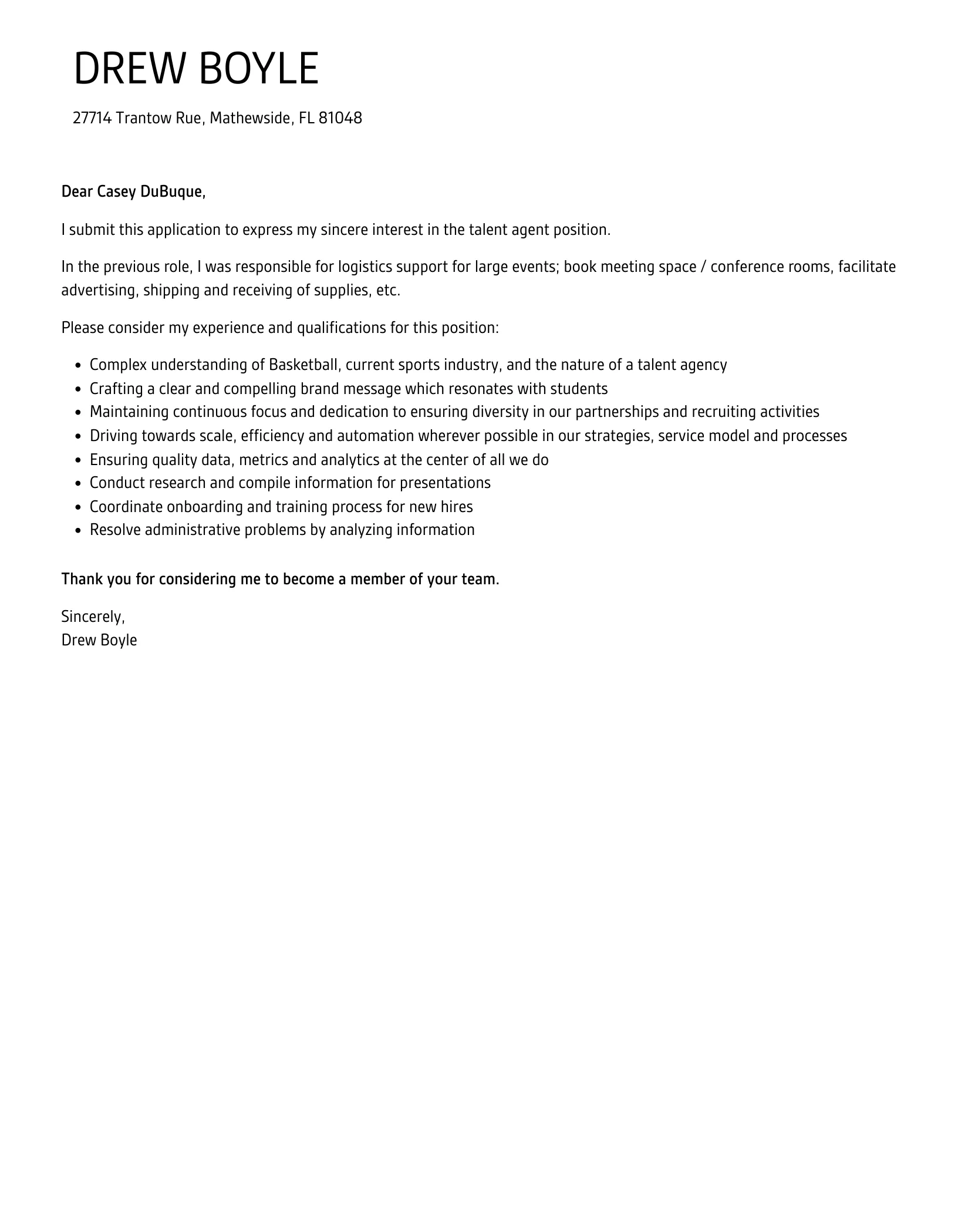
A strong closing summarizes your qualifications. Reiterate your interest in working with the agency. Thank the reader for their time and consideration. Express your enthusiasm for the opportunity to meet and discuss your application further. Include a clear call to action, such as inviting them to contact you for an interview. Make sure your contact information is readily available. The closing is your last chance to leave a positive impression. Make it concise, professional, and enthusiastic. Avoid generic phrases and instead, personalize your message. Reiterate your value proposition and your enthusiasm for their work. The closing is your opportunity to wrap up your letter. It should be memorable and encourage the agency to take the next step.
